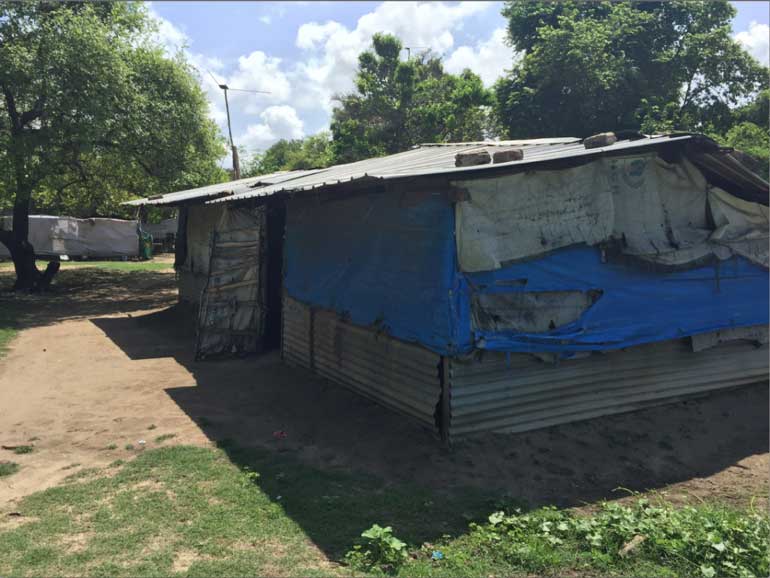Monday Feb 16, 2026
Monday Feb 16, 2026
Saturday, 21 November 2015 00:00 - - {{hitsCtrl.values.hits}}

Makeshift home of a displaced family in Sampur, Sri Lanka, October 2015 – 2015 James Ross/Human Rights Watch
By James Ross
www.hrw.org: “More than others, the Tamils know the trauma of war,” Sri Lanka’s new President, Maithripala Sirisena, told those gathered at a resettlement ceremony in August in Sampur, in the country’s northeast.
In 2006 more than 800 ethnic Tamil families here were forced to flee fighting between the secessionist Liberation Tigers of Tamil Eelam and Government forces. Although the war ended in 2009, the creation of naval bases on previously inhabited land had prevented those displaced from returning to their homes.
Some 200 families quickly took up Sirisena’s offer to return and by the time I visited Sampur in October, many others had joined them. Humanitarian agencies were helping to build homes and other infrastructure and Sampur, a flat, exposed region near the coast, is now vibrant with reconstruction.
“Many of these people suffered terribly during the war,” an eastern provincial councillor told a Sri Lankan human rights activist and me. There were forced disappearances and many others just went missing. “Most people don’t know the fate of their relatives,” he said. “The Government should provide them information and compensation.”
Many others are waiting to return to their homes. I met several women from a group of 250 Tamil families who have waited almost six years to return to their homes. They’ve been living in makeshift houses with no electricity and inadequate water and sanitation. International food assistance ended years ago. They get some Government assistance and make a little cash working on nearby construction projects.
The owners of the land on which they’ve been living want the families to leave. The families want to leave too. The Sri Lankan Navy, which had built a base on their land just a few kilometres away, has already relocated to a new area, but says the families can’t return until January.
“Why January?” a young woman asked, shaking her head. “Why can’t we return now?”
(The writer is Legal and Policy Director, Human Rights Watch.)